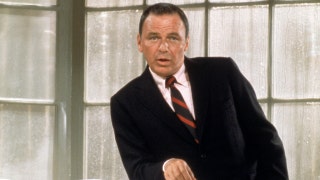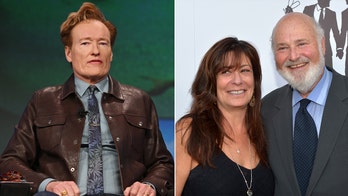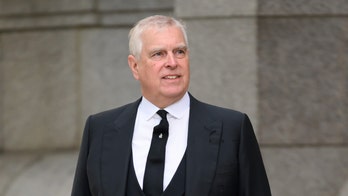Sex symbol Brigitte Bardot left the spotlight because she’d ‘had enough': author
The actress-turned-animal activist is the subject of a new book, "Being Bardot," which features unseen photos from Douglas Kirkland and Terry O'Neill.
It was 1973 when Brigitte Bardot, a sought-after actress from the ‘50s and ‘60s, left the spotlight just before turning 40.
Fifty years later, the French star is now the subject of a new photo book titled "Being Bardot." The latest release from ACC Art Books features more than 150 photos and contact sheets from the archives of legendary photographers Douglas Kirkland and Terry O’Neill. All the images, many of them rare and unseen, focus on the final years of Bardot’s showbiz career.
O’Neill, who captured London’s swinging ‘60s, passed away in 2019 at age 81. Kirkland, best recognized for his images of Marilyn Monroe, died in 2022 at age 88.
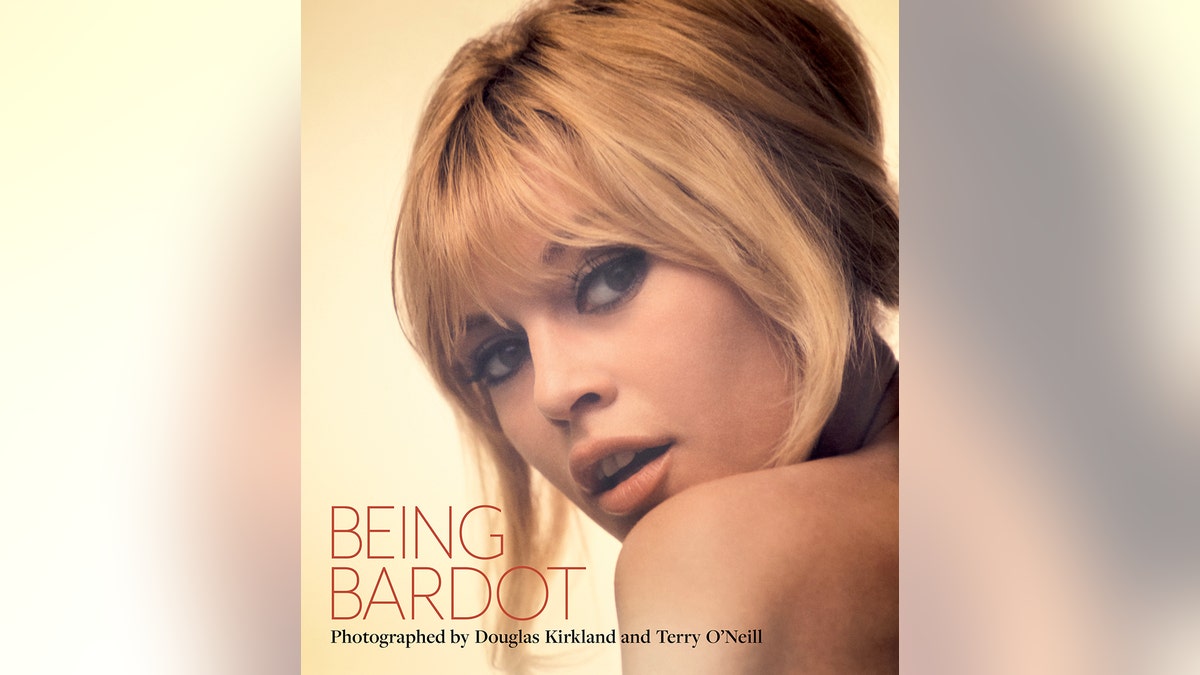
Brigitte Bardot photographs taken by Douglas Kirkland and Terry O'Neill are featured in a new book titled "Being Bardot." (ACC Art Books)
Since retiring from acting, the former sex symbol has dedicated her life to animals, transforming herself into an outspoken activist who fiercely protects her privacy. However, she has also become a controversial figure in recent years for making eyebrow-raising comments that have sparked fury.
In 2008, she was convicted for the fifth time in 11 years for incitement to religious hatred, Reuters reported. According to People magazine, Bardot wrote a letter in 2006 to the then-Interior Minister Nicolas Sarkozy, in which she criticized the Muslim festival of Aid el-Kebir. She was fined $23,325 and ordered to pay $1,555 to the French group Movement Against Racism and for Friendship of People, The New York Times reported. In 2018, she criticized the #MeToo movement to Paris Match.
Despite the scandals, Bardot’s classic movie star image continues to be referenced in pop culture. She is currently the subject of a limited series, "Bardot," which follows her rise to stardom. It premiered in France last month.
BRIGITTE BARDOT BLASTS #METOO MOVEMENT AS 'RIDICULOUS,' 'HYPOCRITICAL'
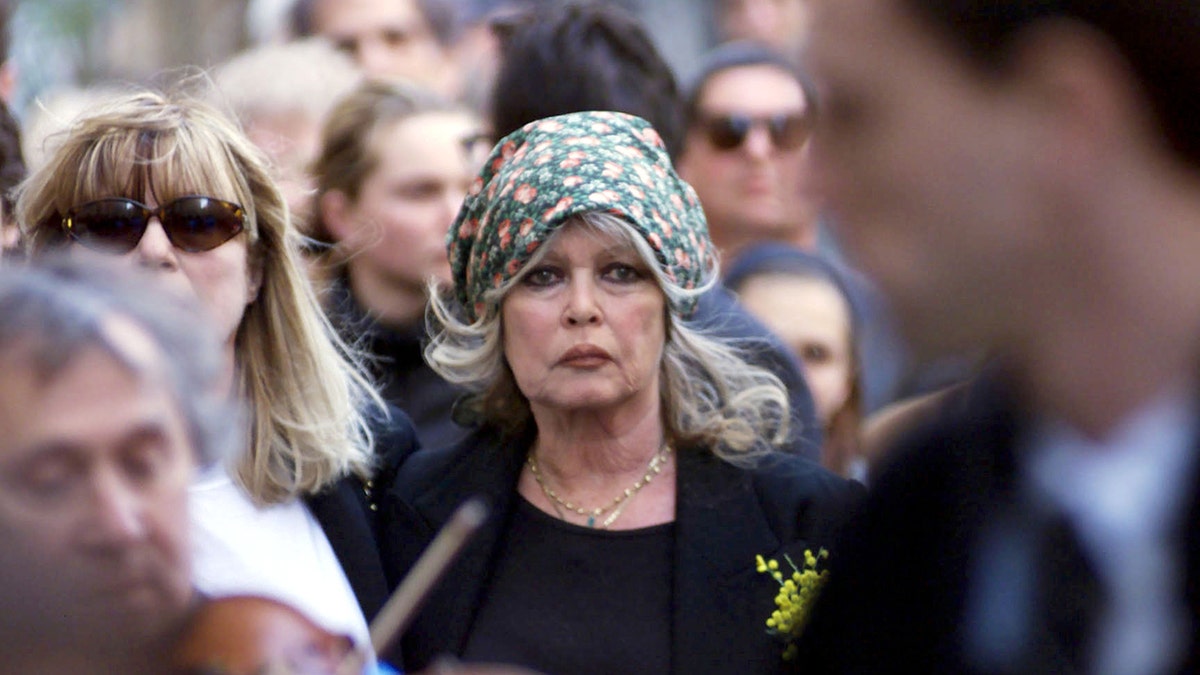
Brigitte Bardot, now an animal rights activist, has become a controversial figure over the years. (Pool RAT/SCORCELLETTI/Gamma-Rapho via Getty Images)
The publisher clarified to Fox News Digital that "Being Bardot" is "a book by two iconic photographers, Terry O’Neill and Douglas Kirkland."
"This isn’t a visual biography, but a celebration of two incredible collections," they added.
James Clarke, a U.K.-based author and film historian, collaborated with ACC Art Books for their latest release. He told Fox News Digital that the book, part of an ongoing series dedicated to classic stars, aims to analyze how O’Neill and Kirkland captured Bardot’s image in the later years before she retired.
Past book subjects have included Paul Newman, Michael Caine, Audrey Hepburn and Elizabeth Taylor, among others.
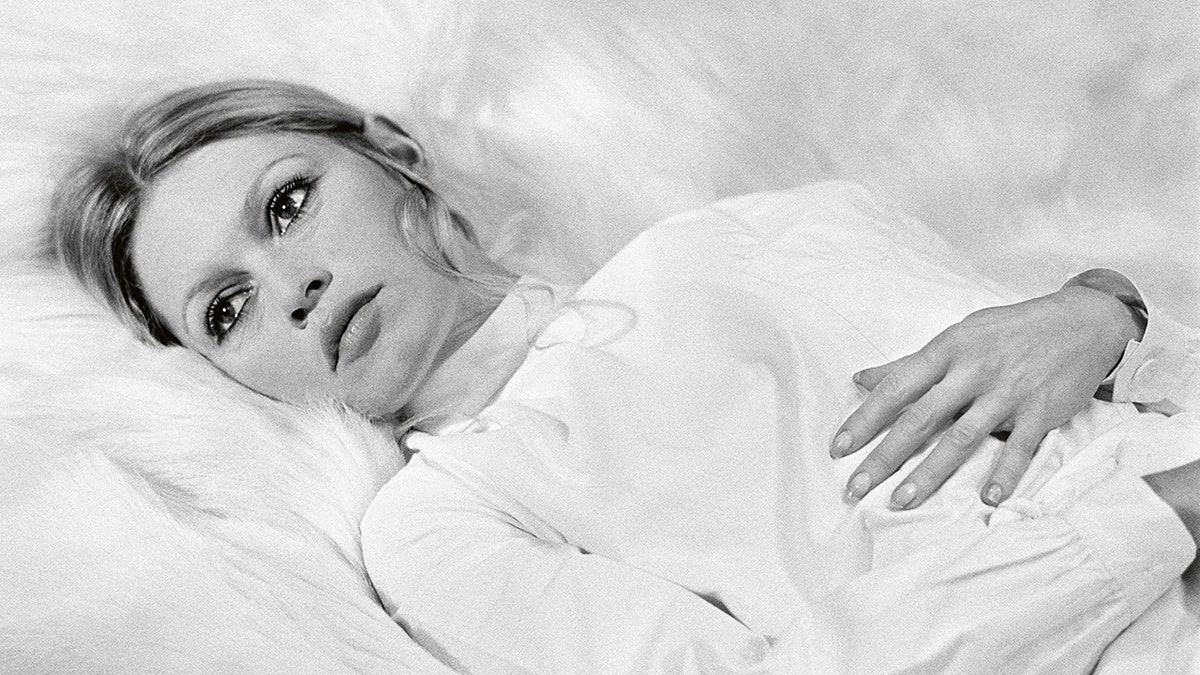
Brigitte Bardot is seen here in 1970. She retired from acting three years later. (Terry O'Neill/Iconic Images)
"It’s a wonderful opportunity to look back at the careers of a number of movie stars, but also understand how these photographers contributed to their image," he explained.
"We are looking at a series of images which come out of the late ‘60s and into the early ‘70s," he noted. "Brigitte Bardot’s movie career began in the ‘50s. The photos in this particular book are very much about the later stage of her career."
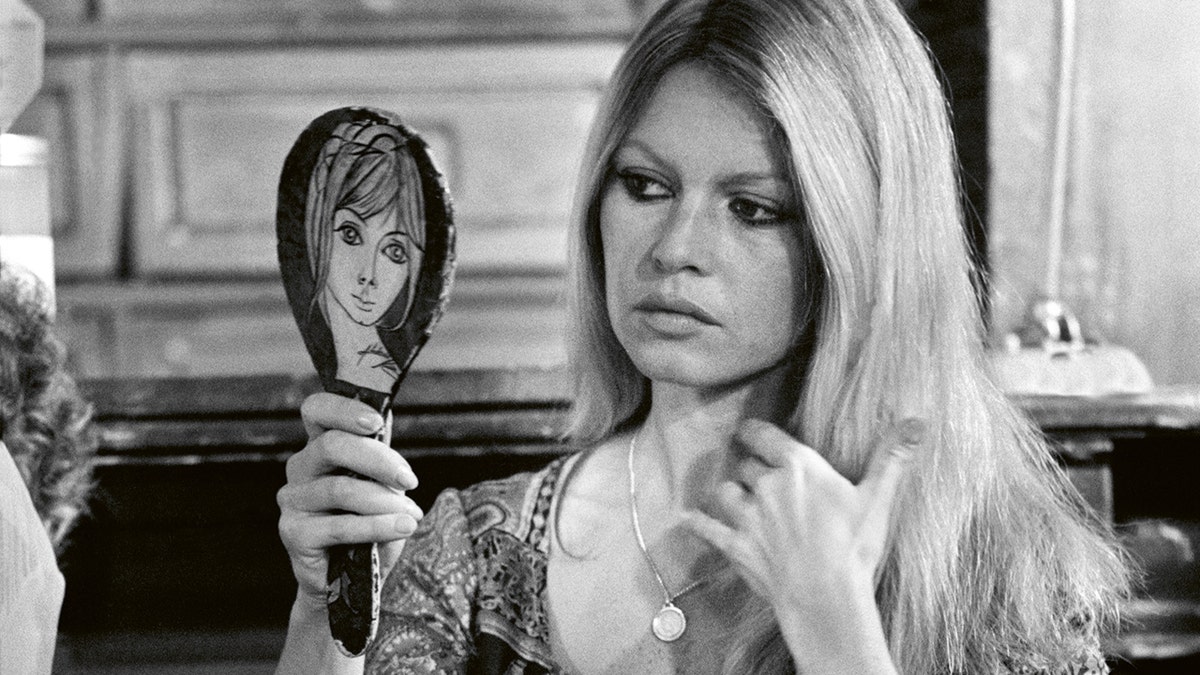
French actress Brigitte Bardot during the filming of "The Novices" in France, circa 1970. (Terry O'Neill/Iconic Images)
A spokesperson for Bardot, 88, did not immediately respond to Fox News Digital's request for comment about the book's release.
CLICK HERE TO SIGN UP FOR THE ENTERTAINMENT NEWSLETTER
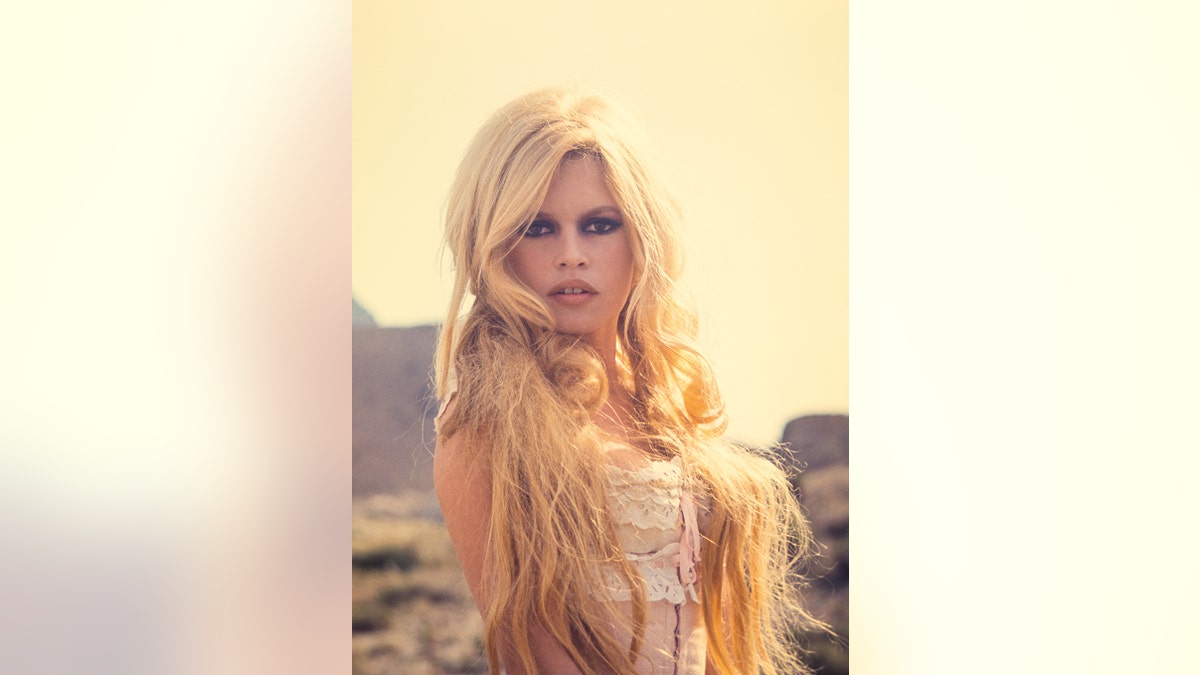
Brigitte Bardot skyrocketed to fame with 1956's "And God Created Woman." (Douglas Kirkland/Iconic Images)
According to Clarke, the reason why Bardot stepped out of the limelight at the height of her career was surprisingly simple – she "had enough."
"There have been a number of books that have been written about her career in the decades since she stepped away from the movies and that public life," Clarke explained. "… There was some exhaustion there, not just from the pace of work, but just [being] the endless subject of a camera lens, whether it’s a still camera lens or a movie lens. That is one of the things that come out a little bit [in this book]… She got to that point where it’s just like, ‘I’ve kind of done it and 20 years has been sufficient.'"
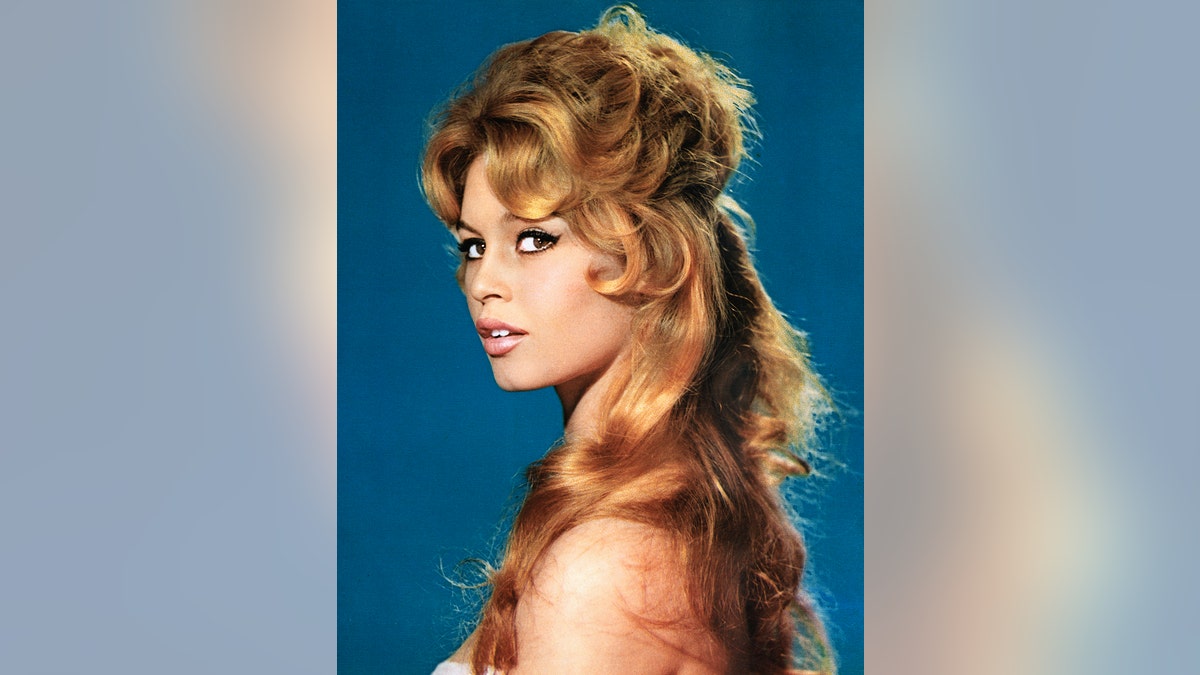
Brigitte Bardot's classic look is still seen in the fashion world decades later. (Herbert Dorfman/Corbis via Getty Images)
"Certainly, if you look at [past] conversations… you do get a sense of her just going, ‘I don’t need to do that anymore,’" he continued. "In the decades since the early '70s, which was really when her career in movies concluded, she became very, very private. Not necessarily reclusive perhaps, but just private, as much of us are."
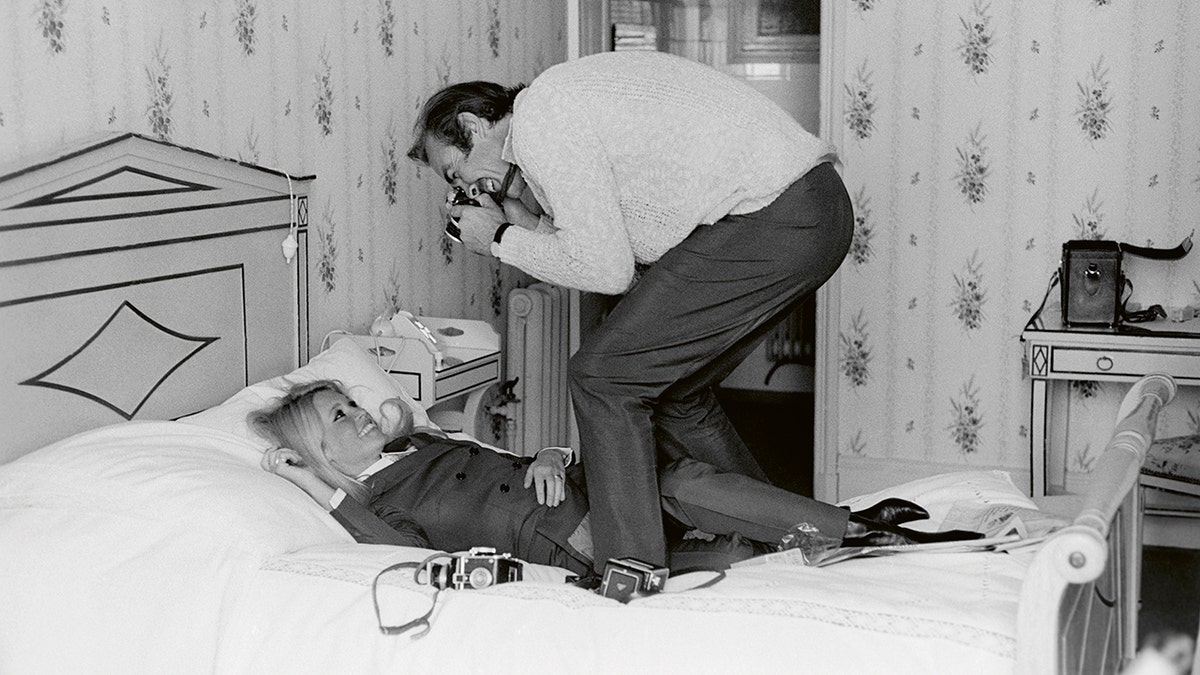
Sean Connery, right, is seen here sharing an intimate moment with co-star Brigitte Bardot in 1968. They went on to film "Shalako." (Terry O'Neill/Iconic Images)
WATCH: SEX SYMBOL BRIGITTE BARDOT LEFT THE SPOTLIGHT BECAUSE SHE’D ‘HAD ENOUGH': AUTHOR
"… Obviously, every movie star has peaks and troughs in terms of popularity and the way they connect with an audience. But certainly, that’s my sense of it just in working on this book… It’s just ‘That’s it.’"
In 1987, Bardot auctioned her jewelry, art, clothes and other personal belongings. The sale raised $500,000. An auctioneer said at the time that the items represented about one-fifth of Bardot’s personal property.
"I gave my beauty and my youth to men," Bardot said at the time. "And now I am giving my wisdom and experience, the best of me, to animals."
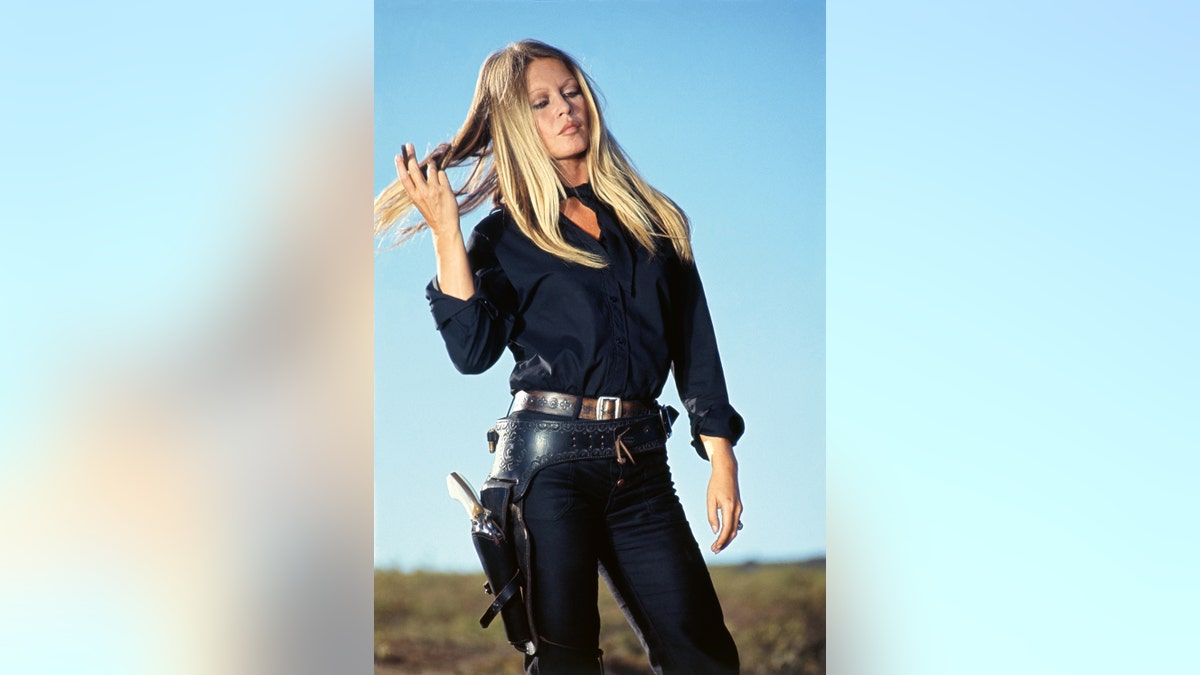
French actress Brigitte Bardot on the set of "Les Petroleuses" in 1971. (Terry O'Neill/Iconic Images)
Bardot rose to international fame following the 1956 film "And God Created Woman." Scenes of Bardot dancing on tabletops in the buff sparked scandal, and she was hailed as one of the world’s most desirable women. She made 48 films, recorded dozens of songs and had a slew of lovers, Reuters reported.
Her memoir was published in 1996. In it, she wrote of her three failed marriages, as well as numerous encounters with familiar faces, like Warren Beatty, Pablo Picasso, Marlon Brando and French screen idol Alain Delon, among others.
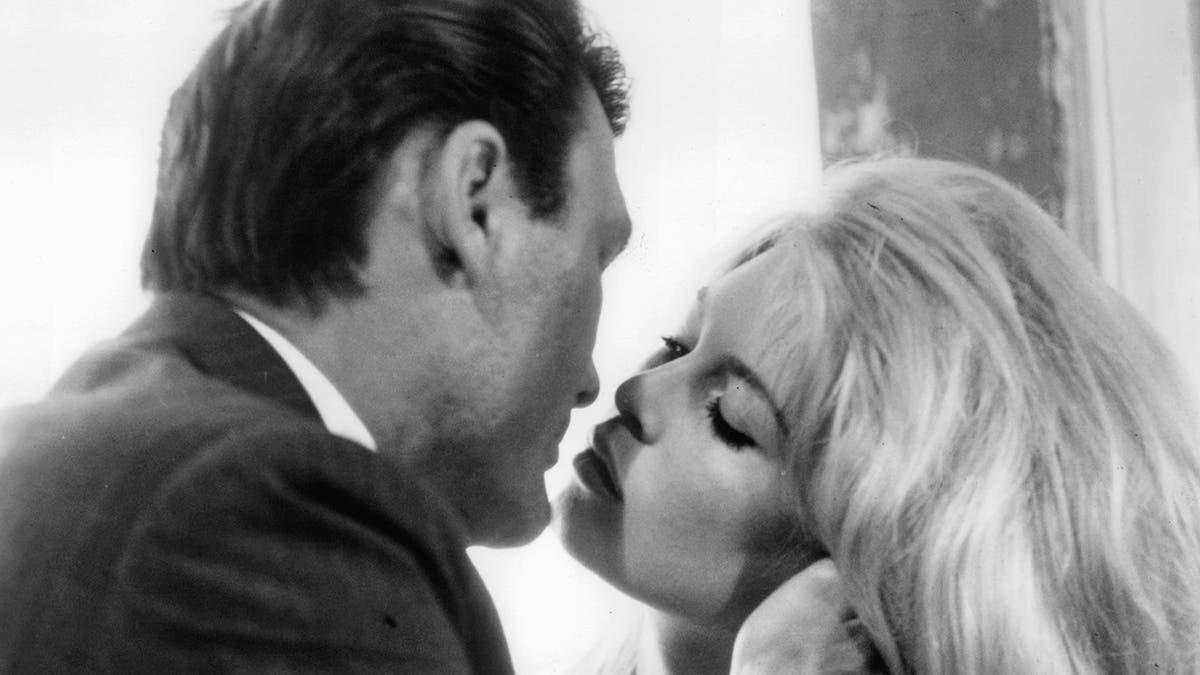
Jack Palance kissing Brigitte Bardot in a scene from the film "Contempt," circa 1963. (Embassy Pictures/Getty Images)
"When you do look through the timeline of her career, it was an intense experience – all the fame and fortune," said Clarke. "I think she put it very bluntly in a sense – ‘had enough.’ There’s a more elegant way to put it, but I think that does come through. You know, the feeling of ‘That’s it.’ Certainly, we’ve got these images from late in her career. Maybe some of that comes through these photographs."
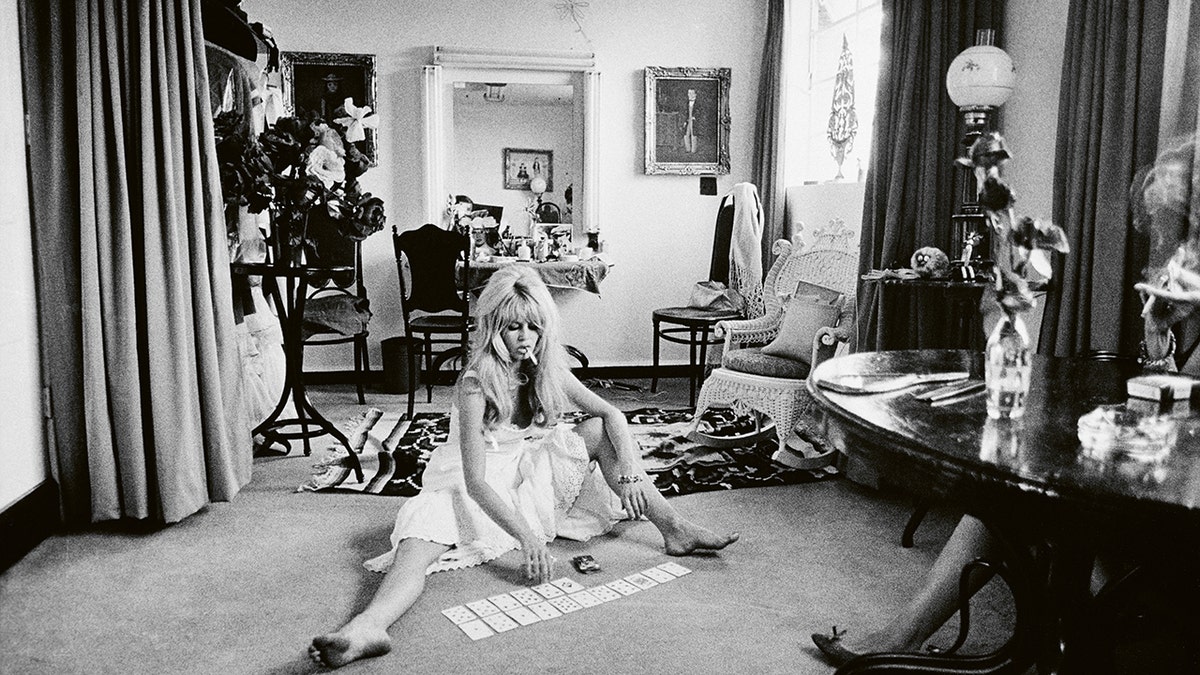
The Beatles said they were fans of Brigitte Bardot and French songwriter Serge Gainsbourg, a former lover, wrote a hit song about her, Reuters reported. (Douglas Kirkland/Iconic Images)
"In many of the images, you see that playfulness," he shared. "She knew how to work with the camera. But then, some images are much less playful. Just more somber."
In 2012, Bardot spoke of her exit to Vogue Homme.
"I was literally crushed by celebrity," she said at the time. "No one can imagine how awful it was. A nightmare. I just couldn’t live like that anymore."
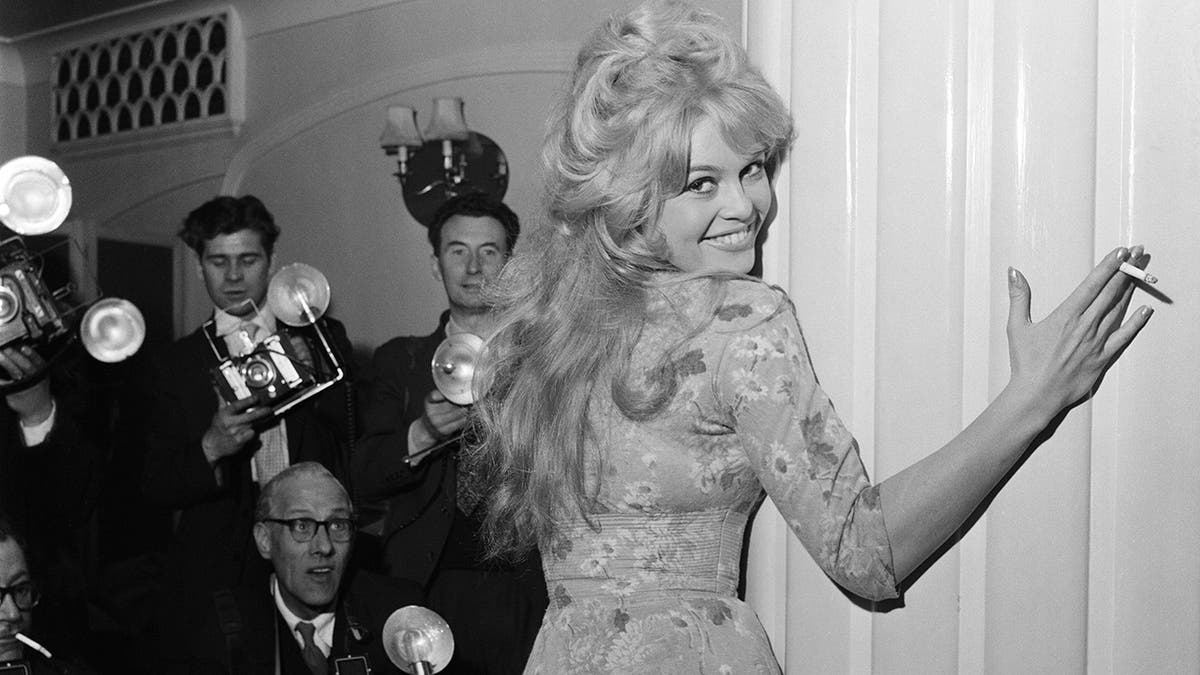
French film actress Brigitte Bardot in England to make the film titled "Babette Goes to War," circa 1959. (George Greenwell and Cyril Maitl/Mirrorpix/Getty Images)
When asked by Vogue if she considered returning to films, Bardot replied "certainly not."
"I quit the films when I was 38 because I’d had it up to here, so I have no desire to go back," she explained.
According to the outlet, Bardot vividly remembered the moment when she "decided to give it all up."
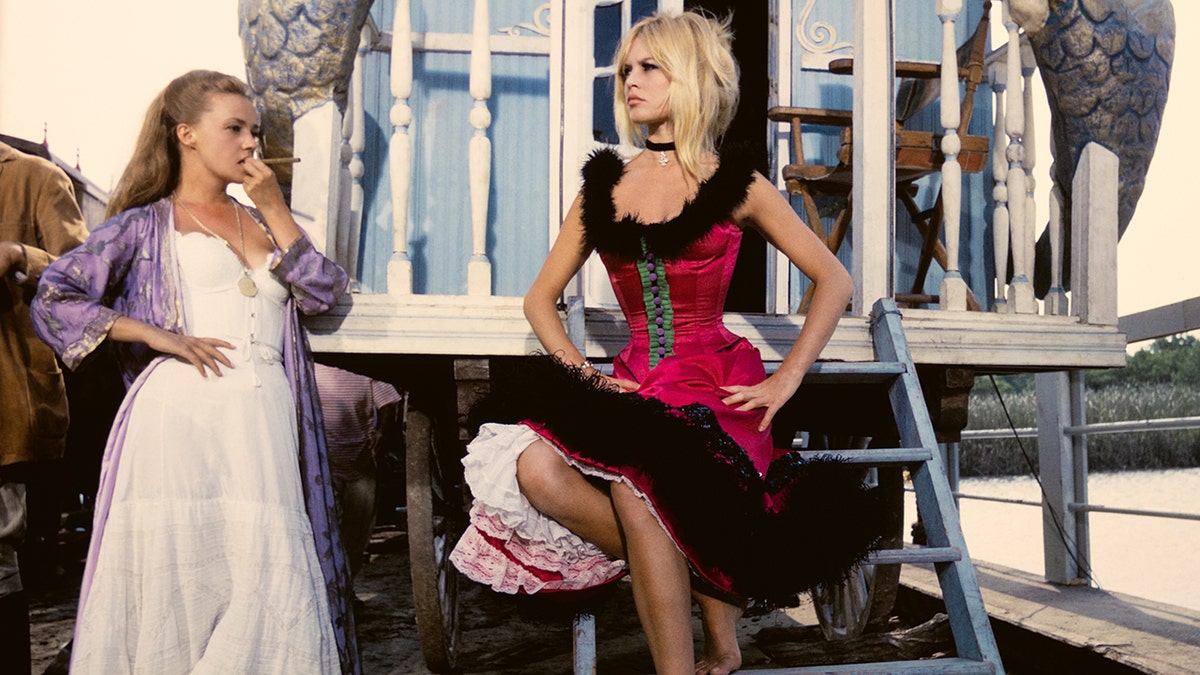
Brigitte Bardot later gave a detailed account to Vogue about why her film career ended. (Douglas Kirkland/Iconic Images)
"We were shooting a medieval romp set in Périgord, called 'Colinot trousse-chemise' by Nina Companeez," Bardot explained. "One day, I saw an old lady holding a little goat on a lead. Obviously, I went up to her to stroke the kid, and there and then, the old lady told me that she hoped we would have finished the scene that evening, because the following Sunday, the kid was going to be spit-roasted to celebrate her grandson’s First Communion. I was terribly upset, and I bought the kid off her. I put it in my trailer and, that evening, I went back to my 5-star hotel in Sarlat with my little goat. If they hadn’t let me in, I would have slept outside with her. Nobody dared say anything to me. So, of course, she and a little dog I had just adopted all slept together, in my bed."
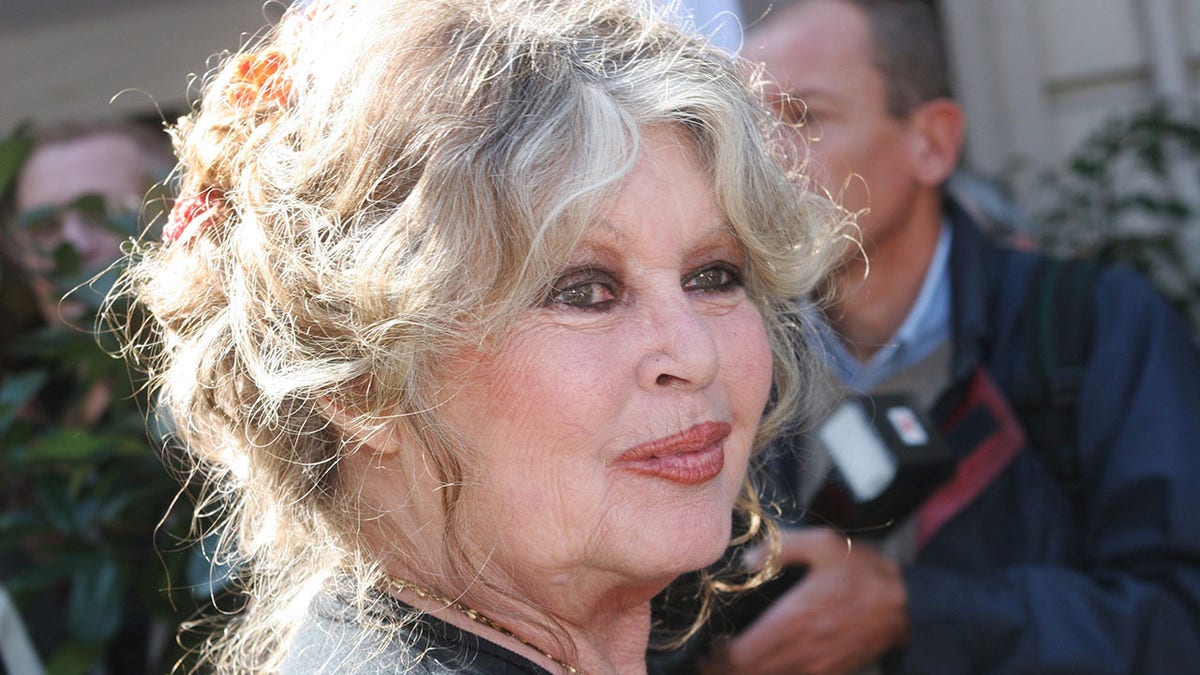
Brigitte Bardot at the 20th anniversary of her foundation in Paris on Sept. 28, 2006. (Photo by Thomas SAMSON/Gamma-Rapho via Getty Images)
"I’ve always loved and protected animals," she continued. "When I was little, I wanted to live on a farm. The story of the little goat made me very angry about people’s cruelty to animals. How could anybody eat such an adorable little animal? Along with that, I could see myself in my dressing room with my pointy headdresses and frilly petticoats – this incredible gear. And I wondered what I thought I was doing... Was that how I was going to grow old in the cinema? Just as I was starting to feel that I really wanted to [give] it all up."
"... During dinner with the film crew, I told them that this film would be my last. There were some reporters from France Soir eating with us. They were all wondering if I hadn’t had too much to drink. They must have thought that I’d get over it. But it was over. Really over."
Since Bardot retired, she has reflected on another blonde sex symbol – Monroe. The American actress passed away in 1962 at age 36.
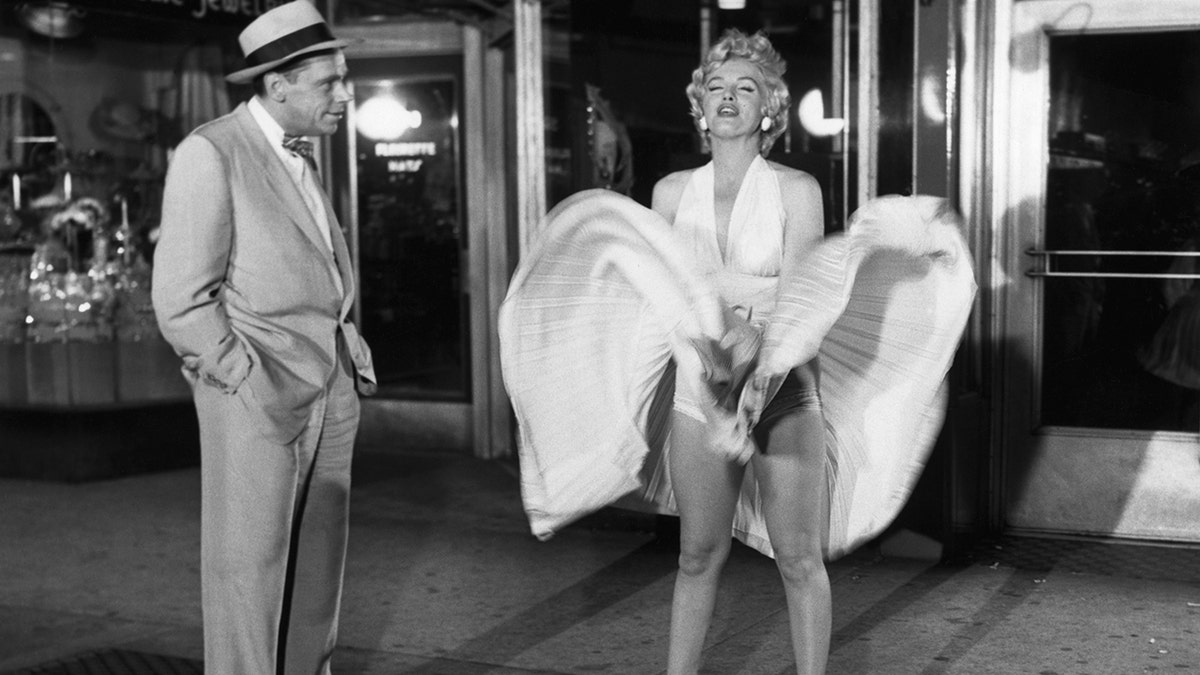
Marilyn Monroe, America's most famous sex symbol, passed away in 1962 at age 36. (Getty Images)
"Just over a decade ago, Bardot gave a rare interview," said Clarke. "She doesn’t give that many interviews anymore and hasn’t really done so for some decades. Nonetheless, she gave an interview to Vogue magazine in France, and she was asked about Marilyn Monroe… Bardot said, ‘She was unique. So sublime. I felt I was light years behind her...' For Brigitte Bardot, Marilyn Monroe was the real deal, if I can put it that way."
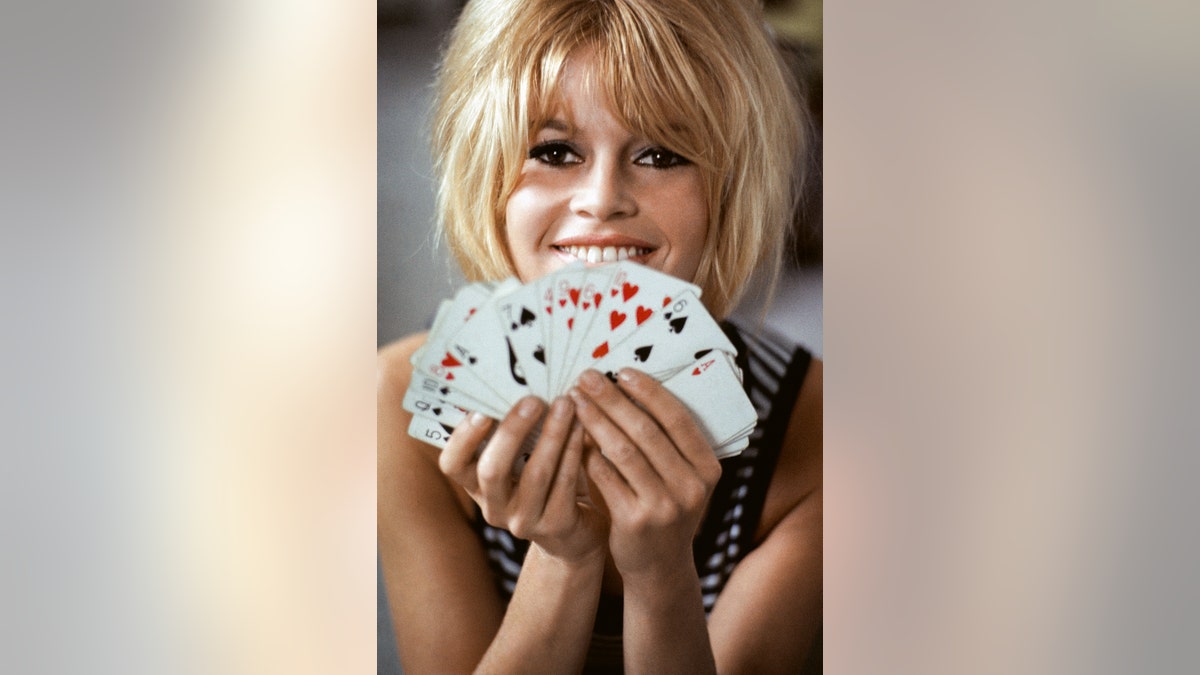
Brigitte Bardot previously shared her thoughts on Marilyn Monroe's influence in Hollywood. (Douglas Kirkland/Iconic Images)
Clarke said that like Monroe, Bardot was "absolutely aware of her sex appeal" and "played with that" on screen.
"She really wound people up with that playful, willful rejection… of a certain kind of traditional sense of how a woman might present herself or be presented," said Clarke. "In 1956, Raymond Cartier, who was the editor of Paris Match, said of her, ‘She was immoral from head to toe.'… You may not have seen any of her movies, but you know her name, and you will know her image."
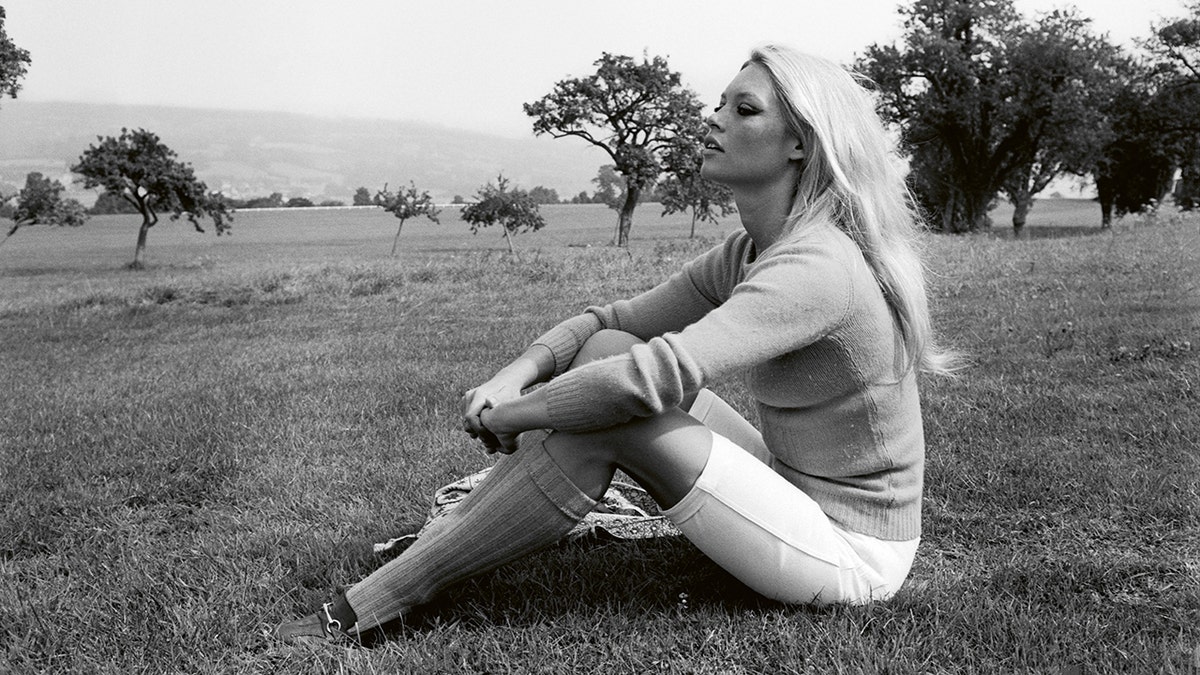
Brigitte Bardot rarely gives interviews today. (Terry O'Neill/Iconic Images)
Clarke hopes that when readers look at the images featured in the book, they’ll admire the talents of Kirkland and O’Neill, two prominent figures in photography who’ve dedicated their careers to capturing the different, often overlooked sides of Hollywood stars.
"That’s the thing that makes me really fascinated by these images," said Clarke. "They’re private, and yet not intrusive."
The Associated Press contributed to this report.





